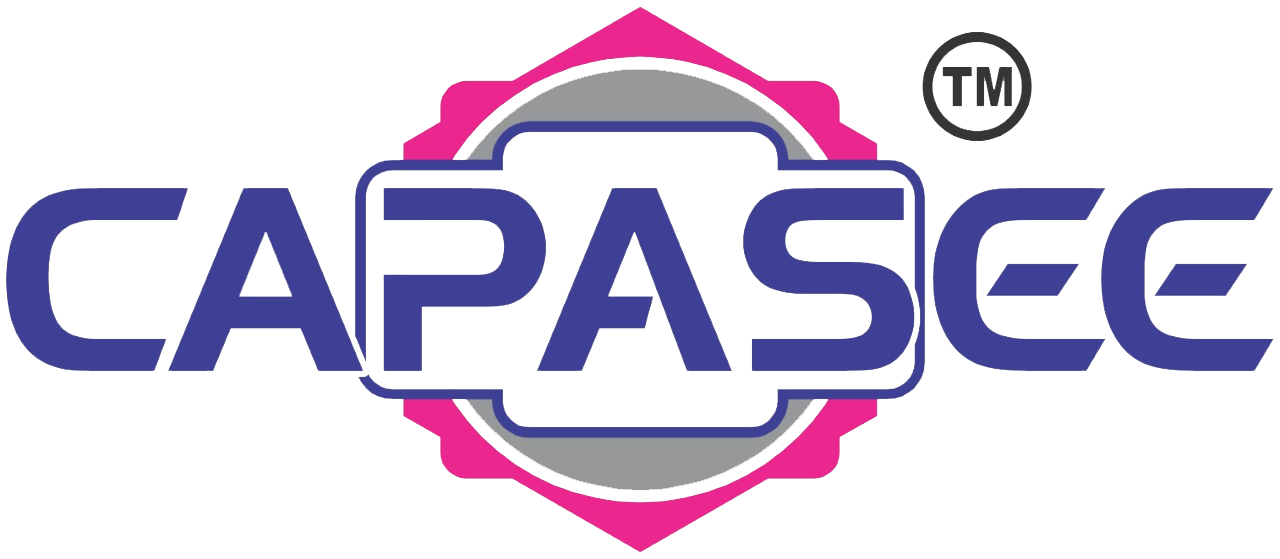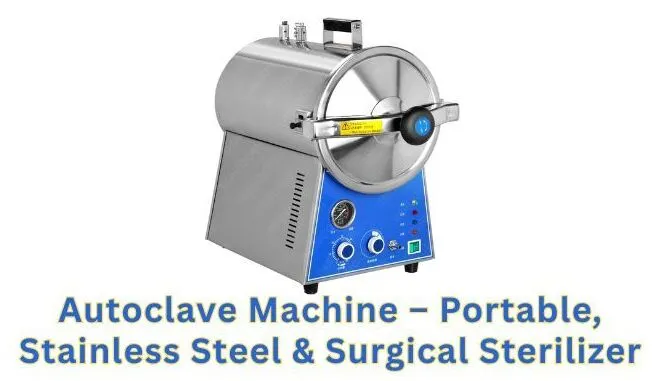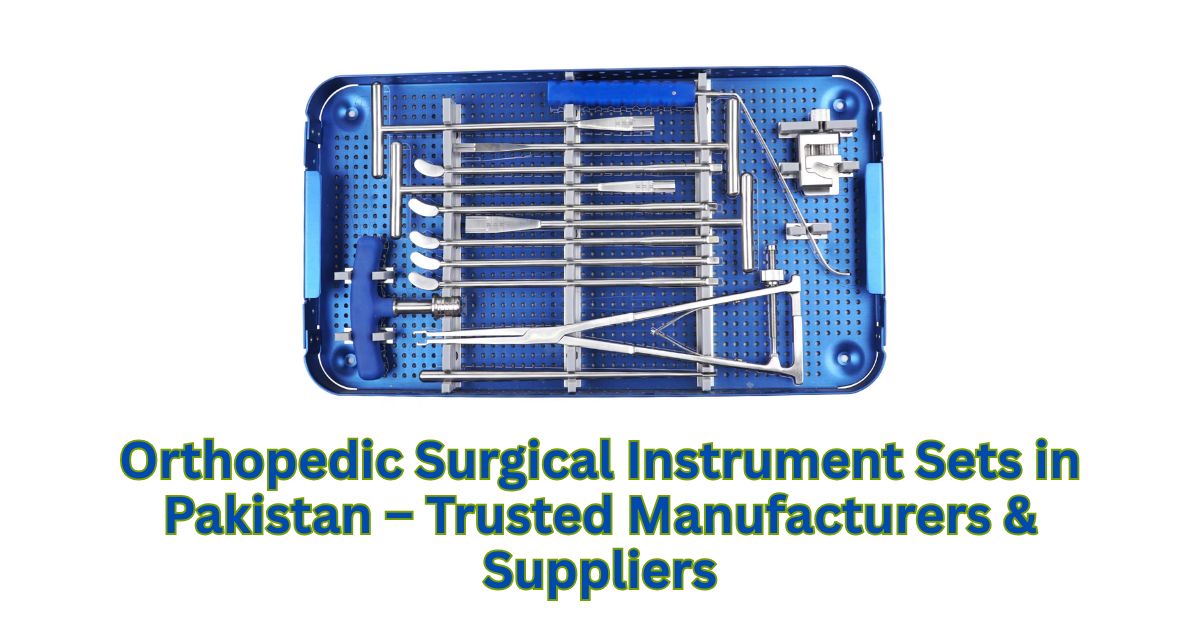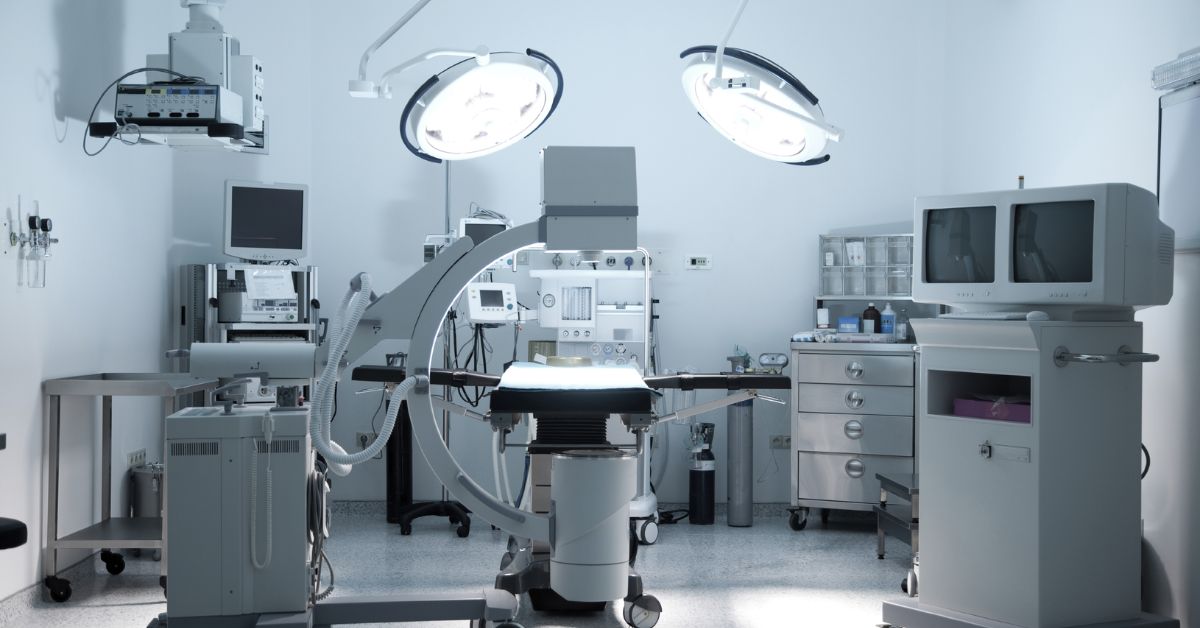Closely related are surgical instruments, basic hospital equipment, and healthcare in Pakistan. These instruments enable speedy and safe operation by doctors. Any hospital’s ability to save lives and prevent complications during surgery depends much on its clean, sharp, strong tools.
Imagine a surgeon poised to save a life, only to find broken or absent tools. One’s life or death can be decided by that instant. Good equipment guarantees faster healing, less mistakes, and better patient treatment all throughout Pakistan.
Many Pakistani hospitals still lack more modern equipment. Particularly in smaller cities and villages, healthcare can advance by adopting premium surgical instruments. Better results for patients and clinicians follow from better tools.
Scalpel – The Precision Cutting Tool

Doctors utilize the little, sharp surgical knife known as a scalpel to make exact cuts during operations. In many medical operations, especially open abdominal surgery, where accuracy is vital, it is vital. Usually composed of hardened steel, the blade guarantees sharpness and lifetime. Ratcheted forceps are often used by surgeons to hold tissues steady during knife incision, therefore reducing tissue damage and encouraging better recovery.
In Pakistani healthcare, access to premium surgical instruments such as scalpels is absolutely essential. To stop infections and complications, hospitals have to guarantee that these instruments are sterile and in good shape. For sensitive tissue manipulation, non ratcheted forceps are also really handy next to scalpels. Correct instruction in instrument use improves surgical results, so these tools are absolutely essential in the medical industry.
You May Also Read This Blog: Top Uses and Benefits of a Medical Crash Trolley
Why It’s Essential
Perfect cuts during operations depend much on surgical instruments such as scalpels. Their controlled and hygienic cutting of tissues helps the surgeon do their work precisely. The type of operation dictates the choice of blade size, examples are #10, #11, and #15. For different operations, including minor cuts or open abdominal surgery, these measurements guarantee the appropriate incision.
Patient safety in healthcare Pakistan depends critically on appropriate surgical instruments. Using non ratcheted and ratcheted forceps helps the surgeon control tissues during operations, therefore lowering the risk of problems. Appropriate use of surgical instruments enhances the quality of treatment and helps surgical operations to be successful, therefore benefiting patients with faster recovery times.
Types of Scalpels
Operating rooms maintain one essential surgical instrument among them which is the scalpel. Surgical dissection methods require that their designs enable precise and clean incisions as a mandatory condition. Multiple forms of scalpel blades such as #10, #11, and #15 are employed in Pakistani hospitals based on surgical requirements. The #10 blade works well for large incisions during open abdominal surgery but #15 is most effective when performing small curved incisions.
Every scalpel is part of a whole set of surgical instruments, together with suture cutting scissors and needle holders for sewing. Selecting the correct blade is just as crucial as knowing the difference between Allis and Babcock forceps or utilizing the right curved vs. straight surgical equipment. These choices lower danger, enhance healing, and aid with atraumatic tissue grabbing. For this reason, among all general surgical instruments used in Pakistan, scalpels remain indispensable medical equipment.
Disposable vs. Reusable Scalpels
One uses a disposable scalpel once and tosses them away. These lower infection risk by nature and are safe. In an emergency, they save time, are neat and crisp. In Pakistan’s healthcare system, disposable instruments come in handy in crowded hospitals with inadequate staff. Used in many surgical instrument sets during rapid operations or atraumatic surgical procedures, they are a necessary component of basic hospital tools.
Made of solid metal, reusable scalpels may be sterilized. Long operations like open abdominal surgery benefit from this. Surgeons utilize them along with other instruments including self retaining retractors, suture cutting scissors, and needle holders for stitching. Generally speaking, both kinds of scalpels are rather valuable tools for general surgeons. The decision relies on the type of surgery, financial situation, and configuration of the Pakistani medical institution.
Importance of Sterilization in Healthcare Pakistan
Sanity of sterilization keeps surgical instruments safe and clean. During operations, surgeons at Pakistan’s hospitals employ sterile instruments such as Rampley sponge holders, Debakey forceps, and needle holders. Inadequate cleaning lets dangerous bacteria into the body. After open abdominal surgery or even slight wounds, this could lead to infection. Sterilization guards against major issues for the patient as well as the clinician.
After every usage, instruments including Mayo scissors, McIndoe scissors, retractors, and Babcock forceps have to be completely sterilized. Safe tools for atraumatic tissue gripping, vascular clamping and ligation, and surgical dissection methods abound. Sterilization is crucial when employing ratcheted rather than non ratcheted instruments or curved rather than straight surgical equipment. Good basic surgical abilities and safe medical practice in Pakistan depend on cleanliness of general surgery tools in every facility.
Common Uses
All necessary hospital equipment in Pakistan consists of surgical instruments. They assist doctors in general surgery, dermatology, and emergency cases among other fields. Tools include Allis forceps, Debakey forceps, and Spencer Wells forceps used for cutting, holding, or clamping in surgeries including open abdominal surgery. These instruments help patients to fast recover, atraumatic tissue gripping, and vascular ligation.
In emergency treatment, suture cutting scissors, needle holders, and Rampley sponge holders are quite helpful. Tools applied in surgical dissection methods, bowel handling tools, and fascia grabbing instruments save lives. The type of surgery determines which tools self retaining vs. manual retractors and ratcheted vs. non ratcheted instruments. For speedy response during trauma care and quality treatment, Pakistani hospitals rely on general surgery tools and full sets of surgical instruments.
Surgical Scissors For Cutting and Dissecting Tissues

Key surgical instruments used for cutting skin, muscles, and tissues generally in general surgery and open abdominal surgery include surgical scissors. Every surgical tool set in Pakistani hospitals consists of scissors such as Mayo scissors and McIndoe scissors. Based on the kind of dissection or tissue work, surgeons use curved rather than straight surgical instruments. These scissors enhance surgical results and support fundamental surgical ability.
Safe Dissection in Surgery Rooms
During and after procedures, doctors clip stitches and tissues neatly using suture cutting scissors. This facilitates seamless wound healing. Part of the surgical instrument handbook for medical students, the names of curved surgical scissors are crucial for training. Like choosing between Mayo and McIndoe scissors, appropriate scissors are selected meticulously in operations requiring atraumatic tissue manipulation. This guarantees improved treatment and safety in basic hospital tools.
Why It’s Essential
Every safe and effective surgery starts with surgical instruments. High quality basic hospital equipment including scissors, forceps, and needle holders for stitching is what hospitals and clinics in Pakistan depend on. During surgery, these instruments assist in surgical dissection methods, atraumatic tissue gripping, vascular clamping and ligation. Patient care would suffer without these general surgical capabilities, particularly with regard to open and emergency abdominal procedures.
Supporting Every Surgery Type
From self retaining retractors to suture cutting scissors, every equipment in the operating room has a specific purpose. Depending on the tissue type, surgeons utilize Langenbeck retractors, ratcheted rather than non ratcheted instruments, and curved rather than straight surgical instruments. Key bowel handling tools are equipment like Debakey forceps and Babcock forceps, which explains why usage of Debakey forceps in bowel surgery is crucial. Every single day, these instruments save lives and enhance healthcare Pakistan.
Designed for Cutting Tissues, Sutures, and Bandages
In Pakistan’s healthcare system, safety depends much on sharp, clean surgical instruments. Quickly cutting tissues, removing sutures, and trimming bandages are made possible by tools as McIndoe and Mayo scissors. Every surgical equipment set at a hospital includes these general surgery tools. Based on the cut required, doctors decide whether to use curved or straight surgical instruments, this emphasizes the significance of knowing how to make such decisions between Mayo and McIndoe scissors.
Suture cutting scissors and other surgical instruments enable surgeons save time and prevent soft tissue harm. They go nicely with various instruments such as fascia gripping tools, atraumatic grip devices, and needle holders for sewing. Debakey forceps are utilized in open abdominal surgery since their smooth grip explains why they are used in bowel surgery. Every kind of operation performed in Pakistan depends on such exact cutting tools as basic hospital equipment.
Different Shapes (Straight, Curved) for Various Surgical Needs

Surgical instruments in Pakistan’s healthcare system vary in form to fit various purposes. Different surgical instruments curved vs. straight help doctors precisely cut, raise, or move tissue. Every hospital has names for curved surgical scissors including Mayo scissors and McIndoe scissors. Every set of surgical instruments includes them, which enable doctors to apply safe surgical dissection methods during therapy and emergency care.
Straight tools help with stitches utilizing needle holders and enable direct cutting. In open abdominal procedures, curved tools reach further locations. Simple surgical skills show when to utilize suture cutting scissors or fascia gripping tools. These forms also influence ligation and vessel clamping using equipment like Spencer Wells forceps. Therefore, both forms are important for all kinds of general surgical instruments used in hospitals all throughout Pakistan.
Common Types
Doctors and nurses in Pakistani healthcare treat patients with several surgical instruments. Generally speaking, scissors, forceps, retractors, towel clips, and needle holders for sewing are the most often used instruments in general surgery. These instruments simplify surgical dissection methods, atraumatic tissue grabbing, vascular clamping and ligation. Major hospitals’ operations often call for tools including Allis forceps, Babcock forceps, and Debakey forceps.
For many operations, curved rather than straight surgical instruments are also crucial. McIndoe scissors are sharp and used for delicate cuts, Mayo scissors are robust and used for cutting tissues. With what scissors are sutures made? All surgical instrument sets have suture cutting scissors, the solution here. From laparoscopic entrance devices to open abdominal procedure tools, Pakistan’s hospitals depend on these basic tools for every operation.
Mayo Scissors
Strong surgical instruments designed for cutting tough tissues in operations called Mayo scissors. In Pakistan’s operating rooms, they are among basic healthcare tools. Surgeons employ them during other major operations like open abdominal surgery. Their construction in curved rather than straight ssurgical instruments allows versatility. Most surgical instruments sets utilized by Pakistani hospitals for both sophisticated surgeries and basic surgical abilities also include them.
Doctors in Pakistan’s healthcare system choose Mayo scissors for surgical dissection methods and fascia grabbing instruments. They are perfect for cutting muscle and deep tissue since of their heavy duty usage. Surgeons choose Mayo for thick sections and McIndoe for delicate cuts when deciding which of Mayo and McIndoe scissors to use. To guarantee safe and efficient operations, these general surgical instruments are frequently combined with retractors and scissors, Debakey forceps, and needle holders for sewing.
Metzenbaum Scissors
Crucial surgical instruments used in precise tissue dissection are Metzenbaum scissors. Open abdominal surgery is one of the operations requiring accuracy that most use these scissors. Metzenbaum scissors are a component of the surgical instruments required for both more sophisticated operations and basic surgical abilities in Pakistani hospitals. They are especially made for cutting soft tissues and fascia grabbing instruments in delicate regions without compromising neighboring structures.
Metzenbaum scissors are indispensable for Pakistani surgeons in performing atraumatic tissue grabbing since they are extremely flexible. Their small points enable precise cutting, particularly in relation to fragile organs or blood vessels. Metzenbaum scissors are matched with tools like needle holders for sewing and retractors & scissors in many general surgical instruments sets to guarantee safe and effective operations. In surgical dissection and vascular ligation during difficult surgeries, these scissors are also absolutely vital.
Applications in Pakistani Hospitals
In many different disciplines inside Pakistani hospitals, surgical instruments are absolutely vital. Open abdominal surgery is performed in general surgery using basic hospital tools like retractors, surgical scissors, and variants in surgical forceps. In Pakistan’s hospitals, surgical instruments guarantee accurate cuts and safe tissue handling, therefore supporting surgical dissection. Commonly used in abdominal operations, tools like Babcock forceps and Spencer Wells forceps help to make procedures quick and low risk.
In trauma care and gynecology, surgical instruments assist to control delicate operations. Both delicate tissue dissection and vascular ligation in gynecology depend on tools including non ratcheted forceps, Mayo scissors, and needle holders for sewing. Likewise in trauma care, specific tools are used in surgical dissection techniques and wound retraction procedures. The availability of these instruments ensures correct atraumatic tissue grabbing and safe recuperation for patients, therefore benefiting healthcare Pakistan.
Hemostats (Surgical Clamps) Controlling Bleeding

In Pakistani hospitals, hemostats or surgical clamps are indispensable instruments for managing bleeding during operations. In general surgery and open abdominal operations, they are somewhat common. Ratcheted and non ratcheted forceps among other forms let surgeons clamp blood arteries and stop blood flow during surgical dissection. These devices are mostly used in healthcare Pakistan for atraumatic tissue gripping and vessel clamping, so guaranteeing a safe and regulated surroundings for patients.
In trauma care or emergency operations, hemostats are absolutely essential for vascular ligation and bleeding control. Applying pressure helps them to stop too much blood loss and stabilize the patient under operation. For these important chores in healthcare Pakistan, common instruments such as Spencer Wells forceps and Babcock forceps are used. Correct use of surgical clamps is critical for patient safety and effective recovery, thereby stressing their relevance as basic hospital tool in Pakistan’s healthcare system.
Why It’s Essential
Essential surgical instruments in Pakistani hospitals are hemostats. Through securely pinching blood vessels during surgery, they stop bleeding. This stops loss of blood in both minor and major operations. Every set of surgical instruments used in general surgery, open abdominal surgery, and trauma cases includes these instruments. Because they help to support fundamental surgical skills and save lives, they are regarded as indispensable medical tools in Pakistan.
Surgeons use Spencer Wells forceps, Debakey forceps, and other surgical forceps variants for vascular clamping and ligation both in emergency and regular operations. Depending on the scenario, these tools give great control using ratcheted rather than non ratcheted instruments. Hemostats offer safe surgical dissection methods and atraumatic tissue gripping as well. Every hospital in Pakistan needs these since they help to reduce bleeding.
Types of Hemostats
One of the most used surgical instruments in Pakistani hospitals is hemostat. Throughout surgery, they assist with ligation and vascular clamping. Among the several kinds are Spencer Wells forceps, Mosquito forceps, and Kelly clamps. In open abdominal operations and other surgeries, these instruments help to halt bleeding. Their application enhances safety and facilitates correct surgical dissection methods among doctors.
Varieties of surgical forceps enable safe control in both big and small vessels. The instrument used depends on the case, ratcheted against non ratcheted instruments is the choice. Furthermore enabling surgeons to work with accuracy are curved rather than straight surgical instruments. Key in surgical equipment sets in Pakistan, these hemostats are part of general surgery tools. Especially in trauma or emergency treatment situations, surgeons depend on them for rapid response during bleeding.
Kelly Hemostat
Many hospitals all throughout Pakistan employ Kelly Hemostat, a vital surgical instrument. Strong instruments meant for vessel clamping and ligation in medium sized blood vessels. During surgery, these ratcheted forceps enable doctors fast stop bleeding. Kelly clamps make the surgery safe and quick in both open abdominal surgery and emergency treatment. All kinds of general surgery tools include trusted components from surgical instrument sets.
Kelly hemostats are used by doctors in several operations including soft tissue and trauma ones. These surgical instruments lock tightly on vessels, so they perform better than some non ratcheted forceps. They are helpful in surgical dissection methods since the curved form facilitates good grip. Every surgery room needs these instruments, which resemble Spencer Wells forceps. Their small size guarantees smooth atraumatic tissue grabbing for safe treatment between Babcock forceps and more powerful Dunhill forceps.
Mosquito Hemostat
Small but rather strong surgical instruments used in fine and detailed operations are mosquito hemostats. These instruments are kind of ratcheted forceps used to stop bleeding from small blood veins. Their accuracy makes them regarded as vital hospital tools in Pakistan’s medical system. In soft tissue operations, eye surgeries, and open abdominal surgeries when accuracy is most crucial, surgeons employ them.
Part of reliable surgical equipment sets, this device helps with atraumatic tissue gripping. It locks in position to grasp vessels tightly unlike non ratcheted forceps. Particularly in locations with limited visibility, these general surgery instruments fit nicely with needle holders for sewing. For superior control, safe surgical dissection methods, and neat results, many Pakistani surgeons depend on Mosquito hemostats. They match exactly other curved rather than straight surgical equipment utilized in contemporary operating rooms.
Role in Healthcare Pakistan
Especially in rural or underdeveloped areas, the use of surgical instruments saves lives in Pakistani healthcare. Quick cessation of bleeding depends mostly on hemostats and ratcheted forceps. Every surgical instrument set found in hospitals and offices includes these instruments. Surgeons use them to control blood flow and prevent complications during open abdominal surgery, trauma situations, and minor operations.
In emergency treatment, accurate ligation and vascular clamping aid to lower blood loss. Common in Pakistani operating rooms are tools including non toothed surgical forceps, Debakey forceps, and Spencer Wells forceps. These tools increase surgical safety and support fundamental surgical ability. Whether dealing with fascia gripping tools or curved rather than straight surgical instruments, correct use enhances results and encourages the demand for quality surgical equipment all throughout the nation.
Surgical Forceps Grasping and Holding Tissues

In Pakistan’s healthcare system, surgical instrument utilization during operations is rather crucial. Atraumatic tissue gripping is accomplished with surgical forceps ranging from Allis to Babcock to Dunhill. These instruments enable gently gripping of tissues without damage. Depending on the type of tissue, doctors utilize ratcheted instead of non ratcheted tools. In all surgical departments, but particularly in general surgery instruments configurations, these are fundamental hospital tools.
Every kind of surgical instruments has a certain purpose. For what purpose do Babcock forceps find application? They preserve soft tissues like intestines without harm. Differences in Allis vs. Lane forceps force indicate how suited different tools are for different jobs. Littlewoods forceps are a common tool in open abdominal procedures for fascia grabbing. Proper surgical dissection methods and vascular ligation depend on safe holding of tissues. These instruments help teaching hospitals all throughout Pakistan to teach fundamental surgical skills.
Why It’s Essential
Safe and effective surgeries in healthcare Pakistan depend critically on the correct surgical instruments being used. Tissue grasp, pull, or movement is facilitated by tools such Allis forceps, Dunhill forceps, and Lane tissue forceps. Every operation room uses these instruments, which are part of basic hospital supplies. They minimize damage during open belly surgery and other operations and assist doctors in using meticulous surgical dissection methods.
The task dictates the several surgical forceps versions employed. Gentle on soft tissue, non toothed surgical forceps examples like Babcock forceps For what purpose do Babcock forceps find application? They hold bowel without upsetting it. For stronger tissue, Sawtell forceps provide a tight grasp with toothed action. Every surgical tool set contains these general surgical instruments. Their correct application enhances results in basic surgical skills training all throughout Pakistan and facilitates atraumatic tissue grabbing.
Common Types: Allis Forceps and Debakey Forceps
Important surgical instruments used in holding slippery tissues during operations are Allis forceps. Every operating room in a Pakistani hospital has these general surgery instruments. Doctors utilize Allis exclusively on tissues being removed since it grabs tightly yet may crush fragile tissue. Allis vs. Lane forceps variations reveal that, for delicate use in open abdominal surgery, Allis is more aggressive while Lane is less traumatic.
Made mostly for atraumatic tissue gripping in vascular operations, Debakey forceps Many Pakistani doctors wonder, “Why use Debakey forceps in bowel surgery?” since these non toothed surgical forceps models preserve blood vessels and soft tissues. Their safe design holds the solution. They are vital in surgical dissection methods and vascular ligation as well as main devices in surgical instrument sets meant for both open and laparoscopic access.
Use in Pakistani Operating Rooms
Every day in life saving procedures like appendectomies and C-sections, surgical instruments are employed in Pakistan’s healthcare system. These operations call for particular surgical instruments like needle holders for sewing and Allis and Debakey forceps. These instruments let surgeons control bleeding, cut sutures, and hold tissues. Reliable general surgery tools are essential in every operating room to ensure successful and safe operations for patients living in rural or metropolitan environments.
For handling tissues, operations such as open abdominal surgery call both ratcheted and non ratcheted forceps. The operation dictates which curved or straight surgical instrument is used. Suture cutting scissors, fascia gripping tools, and atraumatic tissue grabbing tools are among the surgical instruments sets that have to contain. For improved wound care, surgeons also choose Rampley sponge holder over towel clips. Every operation uses these instruments, which highlight the need of fundamental surgical knowledge and appropriate instruments in Pakistani hospitals.
Retractors Exposing the Surgical Site
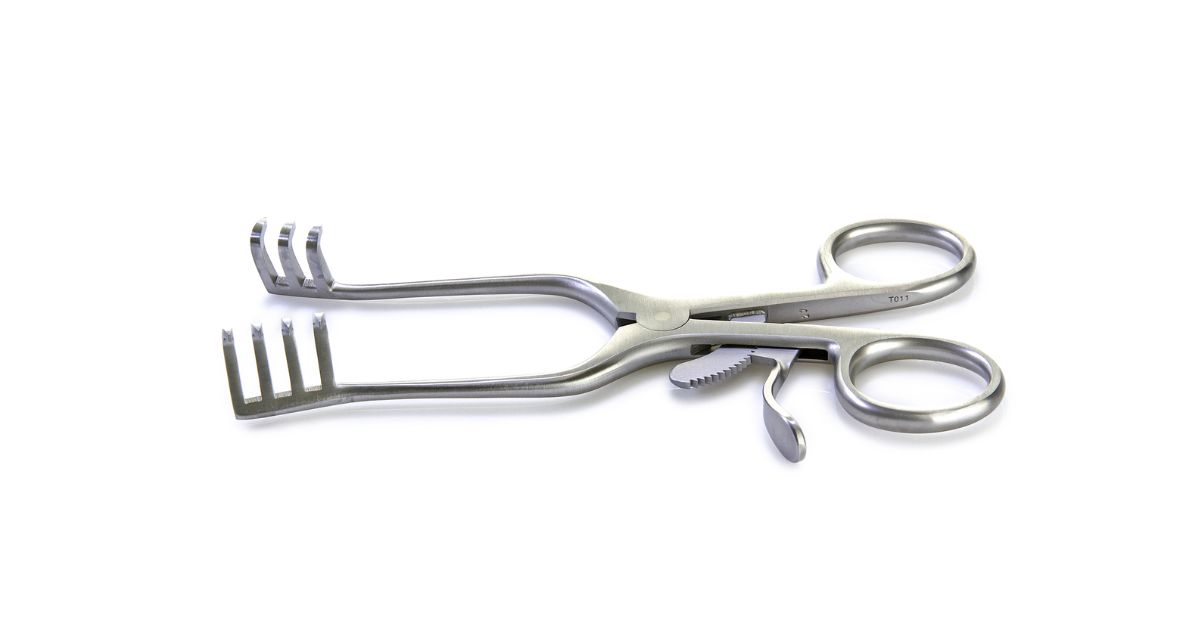
Retractors are crucial surgical instruments used in Pakistani hospitals to open the body during operations. These instruments let the surgeon clearly view the area. Pulling back tissue in open abdominal surgery is accomplished with the Langenbeck retractor, Travers retractor, and Norfolk and Norwich retractor. These assist in wound retraction techniques and provide sufficient area for safe and hygienic operation in local hospitals.
Surgeons maintain the site open with both manual and self-retaining retractors. Every set of surgical instruments used in Pakistan consists of these ones. The best retractors for deep abdominal operations provide broad exposure without injuring surrounding tissue. Key in safe surgical dissection techniques, they support atraumatic tissue gripping. Appendectomies, C-sections, and many more daily operations saving lives depend on these general surgery instruments.
Why It’s Essential
Retractors are crucial surgical instruments in Pakistani hospitals. They set aside organs or tissues to give an improved view during operations. For open abdominal surgery, for instance, the Langenbeck retractor or Travers retractor can pull back the tissues so the surgeon may safely work on the intended area. Without these instruments, the surgeon would find it difficult to view and handle delicate sections, therefore increasing the possibility of problems.
Reducing surgeon tiredness also depends much on retraction. Long operations can be taxing, and hand holding of tissues can be demanding. Retractors for self-retaining support tissues without continual hand work. This helps the surgeon stay concentrated for longer and lessens strain. Every basic hospital equipment set in Pakistan consists of these surgical instruments, which enhance general surgery tools and more difficult surgeries.
Common Types
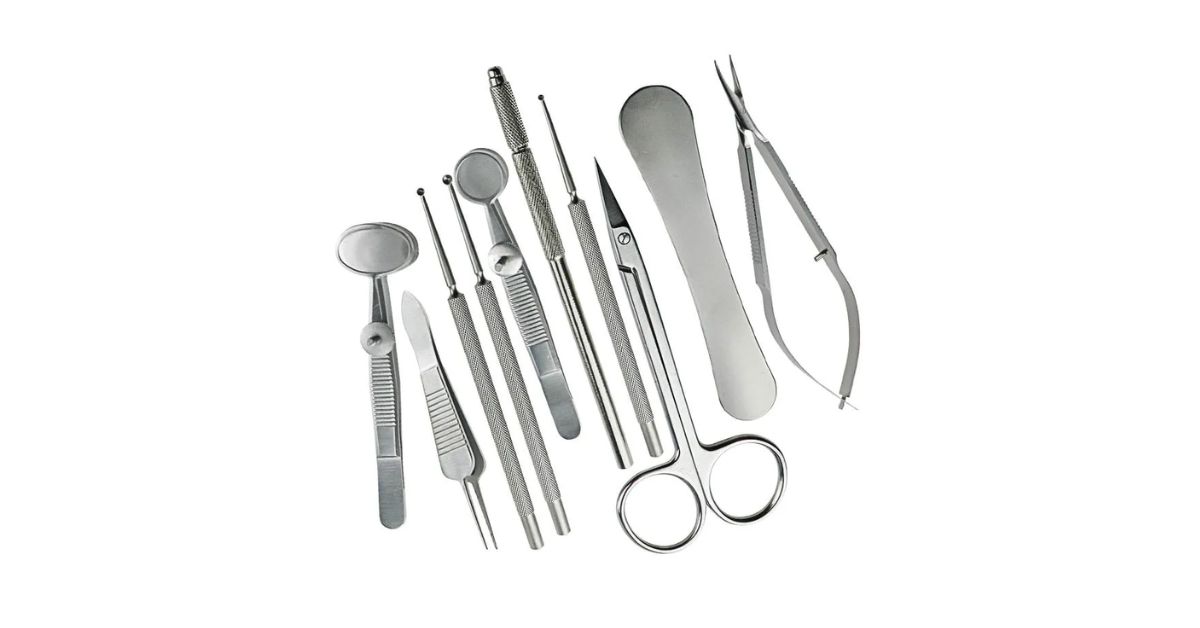
Langenbeck Retractor
Common surgical instruments used in operations requiring minimal incision are the Langenbeck retractor. Pulling tissues aside helps reveal the surgery site. In open abdominal surgery especially, this instrument is quite handy. It offers great clarity so that surgeons may precisely work on the impacted area. Its straightforward design makes it a necessary component of basic hospital equipment used in Pakistan’s healthcare system.
Travers Retractor
Deep tissue exposure during surgery is best handled using the Travers retractor. Working on deeper parts of the body gives the surgeon easier access, so it is very successful. More complicated operations like intestinal surgery depend on this retractor as a necessary instrument. Effective and exact operations in healthcare Pakistan depend on Langenbeck and Travers retractors, therefore lowering the chance of problems.
Importance in Healthcare Pakistan
In resource constrained environments, when assistants are sparse, surgical instruments become even more important. The surgical site is managed using retractors, forceps, and scissors, therefore freeing the surgeon to concentrate on the operation. Particularly during lengthy operations, these basic hospital tools help to retain appropriate vision, therefore preserving patient safety and reducing complications. Such tools assist in both simple and advanced surgeries in Pakistan’s healthcare system.
Improves Surgical Efficiency
Reduced medical staff means that surgical efficiency is much enhanced by surgical instruments. The Langenbeck retractor and Spencer Wells forceps are used to hold tissues aside and clamp vessels, therefore enabling the surgeon to work precisely. In open abdominal surgery where deep tissue access is required this is particularly crucial. The availability of high quality surgical instruments guarantees seamless surgeries, especially in Pakistan’s restricted resources based healthcare environment.
Conclusion
Every hospital should have among its top 5 surgical instruments forceps, scissors, retractors, needle holders, and surgical scissors. These are absolutely essential for safe and effective execution of different treatments. To guarantee patient safety and best outcomes in healthcare Pakistan, quality, maintenance, and sanitation of key hospital equipment must first take front stage. High quality surgical instruments should be investments for hospitals to increase general patient care in the area, lower complications, and increase surgical accuracy.
FAQ’s
What is the most used surgical instrument?
Essential for exact cuts, the scalpel is the most often used surgical instrument.
What is the best surgical tool?
The ideal surgical instrument depends on the operation still, among the most flexible and often used tools are forceps and scissors.
What are 4 groups of surgical instruments?
Cutting, gripping, retracting, and suturing tools constitute the four groups of surgical instruments.
What is the 5 surgical checklist?
The 5 surgical checklists consist of patient identification, surgery site, procedure, anesthesia schedule, and equipment ready.
What is general surgical instrument?
Any instrument used for fundamental surgical operations—such as forceps, scissors, and scalpels is a general surgical instrument.
